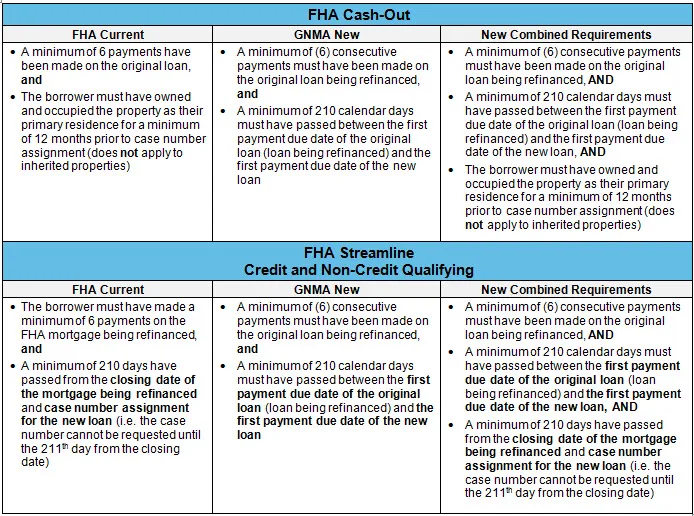Are there seasoning requirements for the property’s ownership? When it comes to purchasing a property, it is important to understand any potential limitations or prerequisites that may exist, such as seasoning requirements. These requirements refer to the length of time a property must be owned before it can be sold or refinanced. While not applicable in all cases, seasoning requirements can impact property owners and investors, affecting their ability to make transactions or access desired financing options. In this article, we will examine the concept of seasoning requirements, explore when they may come into play, and consider the implications they can have on property ownership.
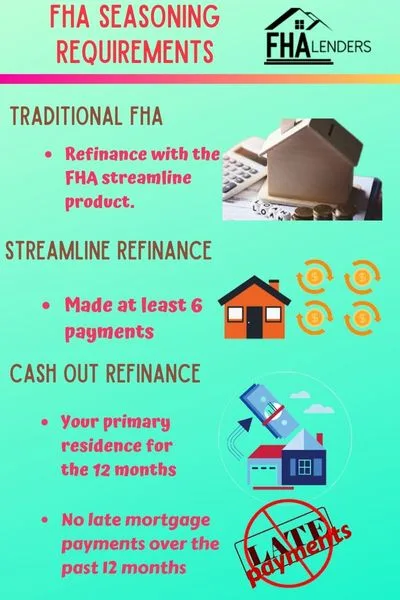
What are seasoning requirements?
Seasoning requirements refer to the specific time period that a property must be owned or held by the current owner before it is eligible for certain financial transactions, such as refinancing or selling. These requirements are put in place by lenders to mitigate the risk associated with newly acquired properties.
Importance of seasoning requirements
Seasoning requirements are important for both lenders and borrowers. For lenders, these requirements serve as a measure to assess the stability and value of the property. By ensuring that a property has been held for a certain period of time, lenders can have more confidence in its value and reduce the risk of potential fraud or inflated appraisals.
For borrowers, seasoning requirements can impact their ability to access certain financial services. By understanding and meeting these requirements, borrowers can position themselves for better loan terms, lower interest rates, and increased options for refinancing or selling their properties.
Exceptions to seasoning requirements
While seasoning requirements are commonplace in the lending industry, there may be certain exceptions depending on the specific circumstances. Lenders may be willing to waive or reduce seasoning requirements for borrowers with strong credit history, substantial down payments, or properties with significant value appreciation.
Additionally, if the borrower is refinancing their current mortgage with the same lender, they may have some flexibility with the seasoning requirements. However, it is important to note that these exceptions vary from lender to lender, and it is crucial for borrowers to discuss their specific situation with their mortgage professional.
Government lending programs and seasoning requirements
Government lending programs, such as those offered by the Federal Housing Administration (FHA), also have seasoning requirements in place. These programs have specific guidelines that borrowers must adhere to in order to qualify for loans.
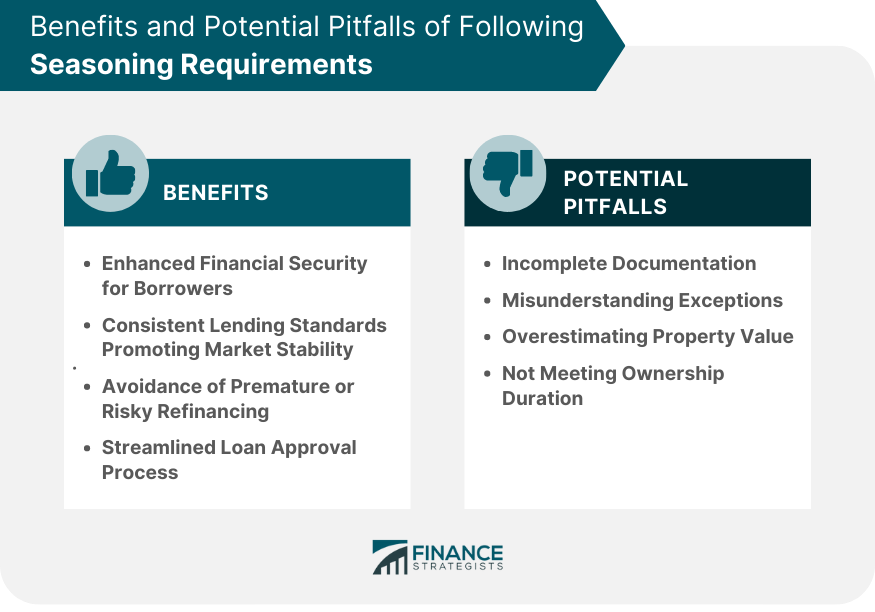
FHA seasoning requirements
Eligibility criteria for FHA loans
To be eligible for an FHA loan, borrowers must meet certain criteria. This includes demonstrating stable income, having a minimum credit score, and having a debt-to-income ratio that falls within the program’s guidelines. Additionally, the borrower must intend to use the property as their primary residence.
FHA loan seasoning requirements
FHA loans have seasoning requirements in place for both purchase and refinance transactions. For purchase transactions, the borrower must have owned the property for at least 90 days before they are eligible for an FHA loan. This is to prevent any instances of property flipping or fraudulent transactions.
For refinancing transactions, the borrower must have made at least six payments on the existing mortgage before they can apply for an FHA refinance. This ensures that the borrower has a history of making payments on time and also allows for the assessment of the property’s value over time.
Conventional loan seasoning requirements
Conventional loans, which are not insured or guaranteed by the government, also have seasoning requirements. These requirements may vary depending on the lender and the specific loan program.
Minimum seasoning requirements for conventional loans
Conventional loans generally require a minimum seasoning period of six months to one year for both purchase and refinance transactions. This means that the borrower must have owned the property for a certain period of time before they are eligible for a conventional loan.
Impact of credit history on seasoning requirements
In addition to the minimum seasoning requirements, the borrower’s credit history may also play a role in determining the eligibility for a conventional loan. Lenders may require a longer seasoning period for borrowers with less-than-ideal credit history, as this allows for a more comprehensive assessment of the borrower’s financial situation.
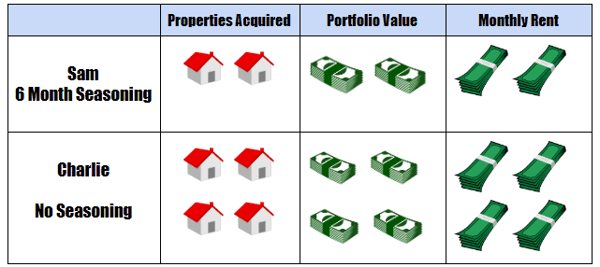
Seasoning requirements for refinancing
Refinancing a mortgage involves replacing an existing loan with a new loan, often with different terms and conditions. Seasoning requirements for refinancing can vary depending on the type of refinancing being pursued.
Different seasoning requirements for cash-out refinancing
Cash-out refinancing allows borrowers to extract equity from their property by refinancing for an amount greater than the outstanding mortgage balance. The seasoning requirements for cash-out refinancing are typically longer than regular refinancing, ranging from six months to one year or even longer. This is to ensure that the borrower has built sufficient equity in the property before accessing additional funds.
Requirements for rate-and-term refinancing
Rate-and-term refinancing refers to refinancing the existing mortgage with a new loan that has different interest rates or repayment terms. The seasoning requirements for rate-and-term refinancing are generally shorter than cash-out refinancing, often ranging from three to six months. This allows borrowers to take advantage of favorable market conditions or adjust their loan terms without having to wait for an extended period of time.
Applying for a loan with seasoning requirements
When applying for a loan that has seasoning requirements, borrowers need to provide documentation to prove the ownership seasoning and demonstrate the property’s value appreciation.
Documentation needed to prove ownership seasoning
To meet the seasoning requirements, borrowers will typically need to provide proof of ownership for the required period of time. This can be done through documents such as the recorded deed, property tax records, or homeowner’s insurance records. It is important for borrowers to maintain accurate records of their property ownership to ease the application process when the time comes.
Demonstrating property value appreciation
In addition to proving the ownership seasoning, borrowers may also need to demonstrate that the property has appreciated in value. This can be done through a current property appraisal or by providing comparable sales data in the area. Lenders want to ensure that the property has maintained or increased its value over time, as this reduces their risk and increases the borrower’s equity position.
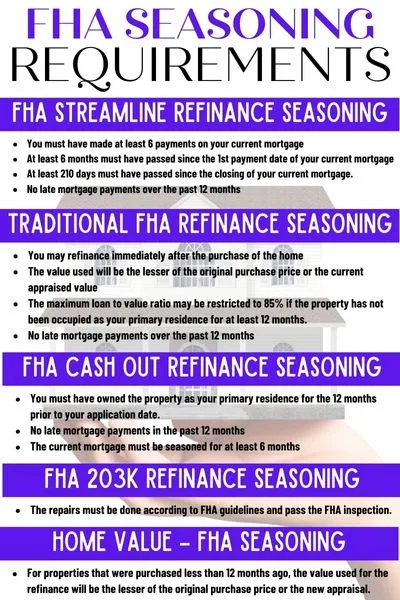
Navigating seasoning requirements for investment properties
Seasoning requirements for investment properties can be more stringent compared to primary residences. Lenders may impose additional requirements due to the higher risk associated with investment properties.
Additional factors for seasoning requirements in investment properties
When it comes to investment properties, lenders often require a longer seasoning period before they are willing to provide financing. This is because investment properties are typically seen as riskier than primary residences, and lenders want to ensure that the property’s value is stable before lending.
Furthermore, lenders may also consider the borrower’s experience and track record as an investor. A seasoned investor with a successful history of managing investment properties may have an easier time meeting the seasoning requirements and accessing financing.
How to meet seasoning requirements for investment properties
To meet seasoning requirements for investment properties, borrowers should be prepared to hold the property for a longer period of time before seeking financing or refinancing options. It is important to carefully review the specific seasoning requirements set by lenders and develop a long-term plan for the investment property to maximize its value and potential for future financial transactions.
Overcoming seasoning requirements
For borrowers who do not meet the standard seasoning requirements, there may still be options available to overcome this challenge.
Options for borrowers with insufficient seasoning
Borrowers with insufficient seasoning may explore alternative loan programs or lenders that have more flexible seasoning requirements. For example, there are specialty lenders or private investors who may be willing to provide financing with a shorter seasoning period or even no seasoning requirements at all. However, it is important to carefully evaluate the terms and conditions of these alternative options and ensure that they align with the borrower’s financial goals and circumstances.
Working with a mortgage professional
Navigating the world of seasoning requirements and finding suitable loan options can be complex and overwhelming. Working with a knowledgeable mortgage professional can be invaluable in understanding the specific requirements and exploring the available options. A mortgage professional can guide borrowers through the process, help them assess their eligibility, and provide expert advice on meeting seasoning requirements or finding alternative solutions.
In conclusion, seasoning requirements play a crucial role in the lending industry by ensuring the stability and value of properties before financial transactions can take place. Whether it is for government lending programs, conventional loans, or refinancing, borrowers must be aware of the specific seasoning requirements and plan accordingly. By understanding these requirements and working with professionals, borrowers can position themselves for successful loan applications and achieve their financial goals.
